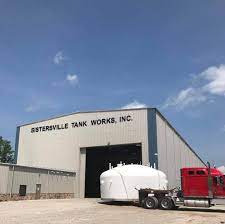Liability insurers that write in West Virginia and beyond received some unsettling and expensive news from the state Supreme Court last week: Without iron-clad policy language barring coverage, long-tail illness claims must be covered and a carrier has a duty to defend – even it the disease didn’t manifest itself until years after a policy had expired.
In answering a certified question from the U.S. 4th Circuit Court of Appeals, the West Virginia Supreme Court decided that the “continuous trigger” theory must apply to injuries alleged to have come from toxic exposure from a manufacturer. Westfield Insurance stopped insuring Sisterville Tank Works in 2010, but is now required to cover the tank company for latent disease claims from workers who were diagnosed with cancer in 2014 and later.
“Under the continuous-trigger theory, damages that are caused, continuous, or progressively deteriorating throughout successive policy periods are covered by all the occurrence-based policies in effect during those periods,” Justice John Hutchinson wrote in the Nov. 8 majority opinion.
After the three longtime workers developed cancer, they and their families sued the 120-year-old Sisterville Tank Works in 2016 and 2017, alleging negligent manufacturing practices exposed them to harmful chemicals. Westfield, which had written the company’s commercial general liabilities policies for four decades beginning in the 1980s, denied the claims from Sisterville and would not defend the lawsuits.
Westfield argued that its policies provided only occurrence-based or manifestation-based coverage, tied to the date when the injuries were diagnosed. But a federal district court found that the Westfield policy language did not clearly identify when coverage was triggered in cases in which a claimant alleged repeated chemical exposures and the gradual development of disease over several policy periods.
The Supreme Court noted that under the continuous-trigger view, coverage is triggered by at least one of three conditions: When an individual is initially exposed to what the policy calls a “harmful condition,” such as a chemical substance; when the disease develops after exposure but has not manifested; or when the illness shows itself.
The justices based their decision on extensive research into the law and the actions of the insurance industry, dating back to 1940. Insurers in that decade, at the nudging of regulators, developed standardized language for commercial liability policies that stressed coverage was for accidents that occurred during the policy period. But this led to confusion over the definition of an “accident.”

Two industry trade groups, including the National Bureau of Casualty Underwriters, after seven years of research, in 1966 came up with new standard policy language, much of which is still used today, the high court explained. One of the reforms was to provide coverage on an occurrence basis, rather than accident basis, but that occurrences also included insidious diseases and gradual injuries.
“History shows that the drafters of the occurrence provisions used in CGL policies deliberately chose broad, but vague, language meant to cover future, unforeseen events,” the justices wrote.
The court said that the insurance industry in 1966 adopted standard general liability “occurrence” language. It is clear that the wording was intended to grant the insureds coverage for injury or property damage as a result of gradual processes resulting from repeated exposure to substances.
“In other words, the drafting history of the occurrence-based CGL policy leads us to find the language incorporates a continuous trigger,” the court wrote.
“Likewise, here, the occurrence and bodily injury provisions that Westfield chose to incorporate into its insuring agreement fail to precisely articulate a trigger of coverage.”
Multiple court rulings also have come down on the side of continuous triggers in cases like this one, the justices noted.
Justice Tim Armstead dissented from the majority opinion on the certified question.
Westfield Insurance is owned by Wesfield Group and is affiliated with Ohio Farmers Insurance and American Select Insurance, according to the Westfield website.
Was this article valuable?
Here are more articles you may enjoy.


 Navigators Can’t Parse ‘Additional Insured’ Policy Wording in Georgia Explosion Case
Navigators Can’t Parse ‘Additional Insured’ Policy Wording in Georgia Explosion Case  These Five Technologies Increase The Risk of Cyber Claims
These Five Technologies Increase The Risk of Cyber Claims  Elon Musk Alone Can’t Explain Tesla’s Owner Exodus
Elon Musk Alone Can’t Explain Tesla’s Owner Exodus  Tesla Sued Over Crash That Trapped, Killed Massachusetts Driver
Tesla Sued Over Crash That Trapped, Killed Massachusetts Driver 